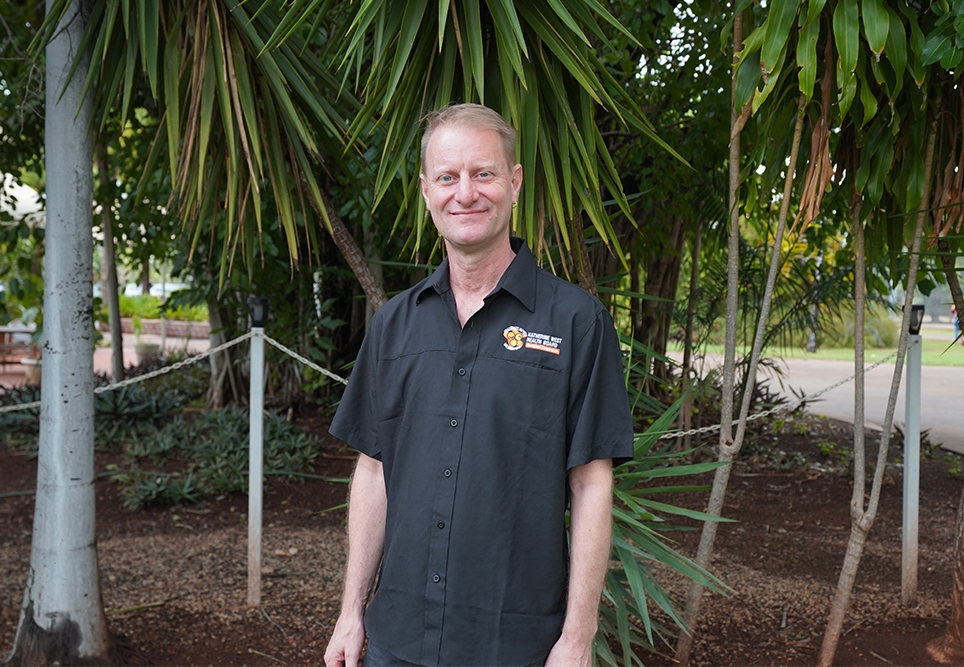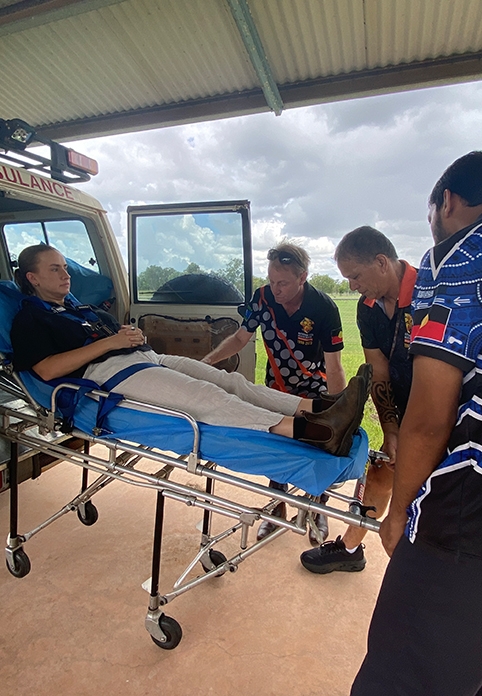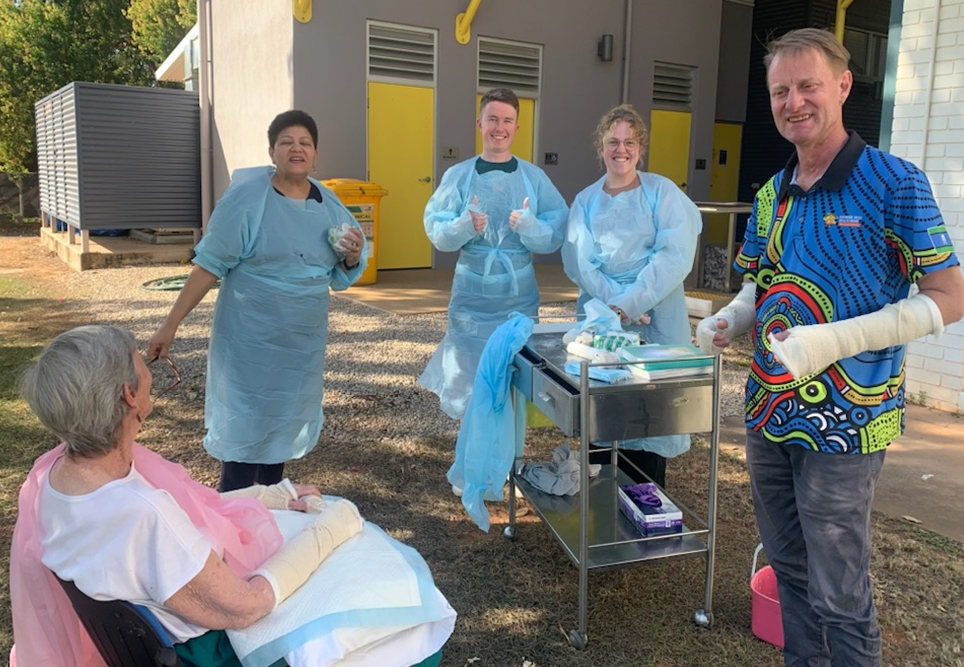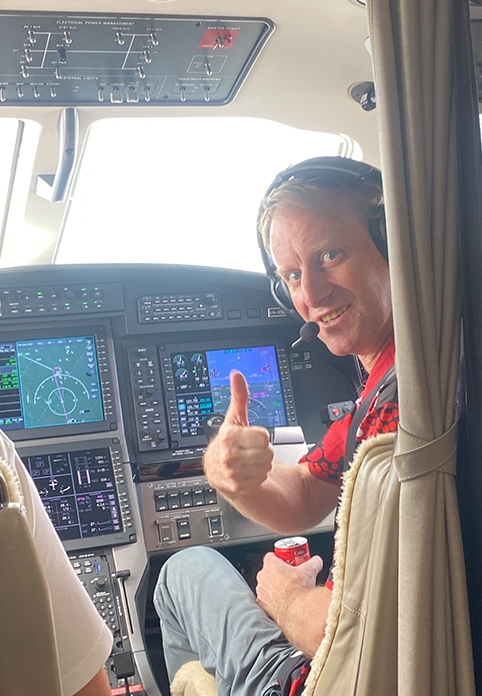
Recognising the need to better prepare nurses heading into rural and remote posts, Phill, currently employed as Remote Area Educator/Mentor, developed a Transition to Remote Practice Program with Katherine West Health Board.
He says the organisation acknowledges that not everyone is suited to the RAN role and a three-month program allows participants to determine if they are interested in a longer-term career as a RAN. The program has proved very successful, with an overwhelming number of applicants and a high retention rate of nurses who have participated.
“Unlike traditional placements, which can last 12-24 months, we offer a three-month program,” says Phill.
“This flexibility allows nurses to experience remote work before committing long-term.”
Phill has fine-tuned the programme over time to provide essential training to equip nurses with the skills and confidence they need and is keen to share his ideas with the Roundtable.

Phill’s passion for preparing nurses for remote posting has its roots in his own first experience 30 years ago.
“My first remote post over 30 years ago was a shock,” he says.
“Transitioning from a metropolitan hospital to a single-nurse post was a steep learning curve, I was entirely unprepared and still not sure what I was thinking taking such a massive career leap.”
“Thankfully, times have changed and there is much more support and resources for nurses who want to take the next step in becoming a RAN today.”
“The two-week preparation period before nurses take up their remote postings with the Katherine West Health Board includes skills and practice that are relevant to the role, for example ear health, health assessment and chronic disease management, suturing, plastering, domestic violence, social determinants of health and ambulance operation. The programme also includes many aspects of primary health care and focuses on providing culturally appropriate care in our organisation.
“Remote nursing involves acute care, and the course recognises that nurses in remote areas can find themselves in situations beyond their normal scope of practice.
“The National Rural and Remote Nursing Generalist Framework 2023–2027 was a key document in putting the program together,” says Phill.

Presentations for participants during the two-week course also cover services offered by Katherine West Health Board, such as Tackling Indigenous Smoking; Strong Beginnings for Strong Families which provides information and support around growing healthy babies; and Safe Families and Safe Communities, which raises awareness about respectful relationships, positive parenting and access to domestic and family violence services.
Phill’s journey into nursing began with an interest in St John’s Ambulance Service and first aid. “Initially, I intended to try nursing for a year or two,” he says.
“That was 35 years ago.”
A practising nurse and midwife, Phill has a keen interest in providing remote nurses with maternity skills that extend beyond dealing with emergency situations and unexpected births.
The PRAMS (Primary Remote Area Maternity Skills) section of the transition programme provides training for nurses in situations without direct access to a GP or midwife.
“We acknowledge that GP or Midwifery care is definitive care but unfortunately that is not always available,” says Phill.
“We show nurses how to translate their existing skills so they can provide basic screening and education and provide feedback to our GPs and midwives in the organisation. We are aiming to have early and regular antenatal care and ensure early detection of potential pregnancy-related complications.”

Phill, whose diverse roles over the years have ranged from single-nurse posts to multi-RN teams spanning both public and private sectors, says his goal with the Roundtable is to contribute strategic insights and management to better prepare and maintain the RAN workforce.
“I am looking forward to the opportunity to network beyond the Northern Territory and contribute to professional development on a national scale,” he says.
“Having a representative from each state ensures a diverse range of perspectives, and I am eager to bring and take new, innovative ideas to the table.
“This Roundtable provides an ideal platform to address challenges in rural and remote health care and enhance our collective approach to nursing and midwifery in remote areas.”
